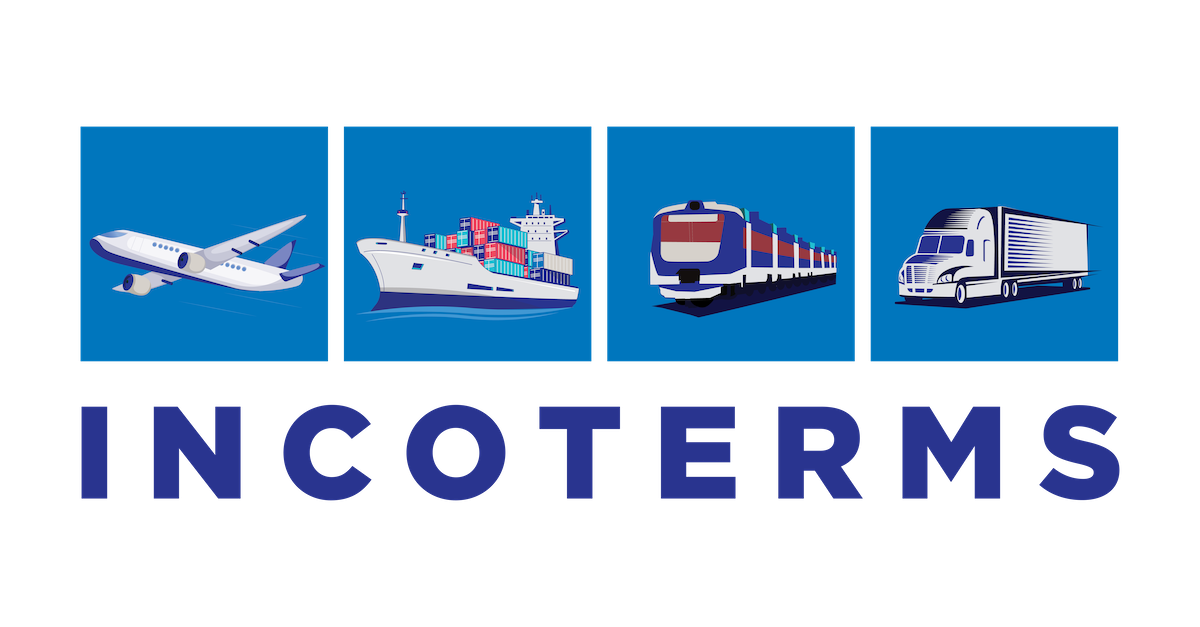An international purchase can be complex. For a smooth delivery and transition of the ownership of your products, it is crucial that both parties — customer/buyer and supplier/vendor — agree in advance on the form of transportation, responsibility for it, and the place of delivery.
That is why we use Incoterms, which are internationally recognized commercial terms that suggest the roles of the customer and supplier in arranging transportation. They clarify:
- The party responsible for transportation and related handling, such as importing and exporting goods
- At what point the transition of product ownership takes place
- Who covers the risk if something goes wrong
Before you purchase goods, it is important to ask yourself what delivery service you expect from your supplier and how that should impact your cost. Let’s dive into the Incoterms we mainly use at Pactics and when to use each of them.
ex works (exw) —
This form is the least risky for the supplier. However, it is often challenging for the customer, who will need to comply with local government regulations and taxes and have to arrange all transportation and related handlings from the factory up to the final delivery.
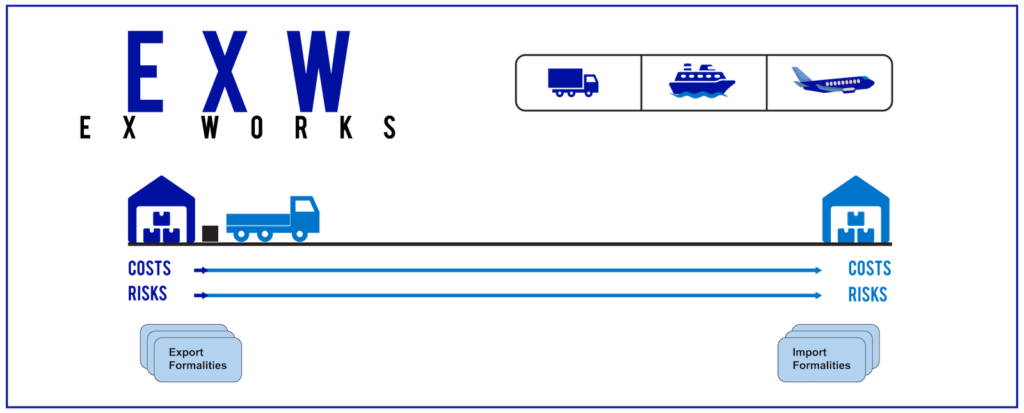
At Pactics, with a factory in Cambodia, we only recommend EXW for local sales (in Cambodia). On the other hand, Ex Works can be useful for quoted prices as it gives you an insight into the price differences of different suppliers at the factory level.
Free on Board (FOB) —
This option is better suited for export sales.
With FOB, the supplier exports goods for the customer and loads them onto a ship or plane at a previously agreed point.
The buyer then handles the rest of the transportation from this export-agreed point, including the import formalities of the destination. In Cambodia, FOB can be either port Phnom Penh or port Sihanoukville in the case of shipment by sea or Siem Reap/Phnom Penh airport in the case of air freight
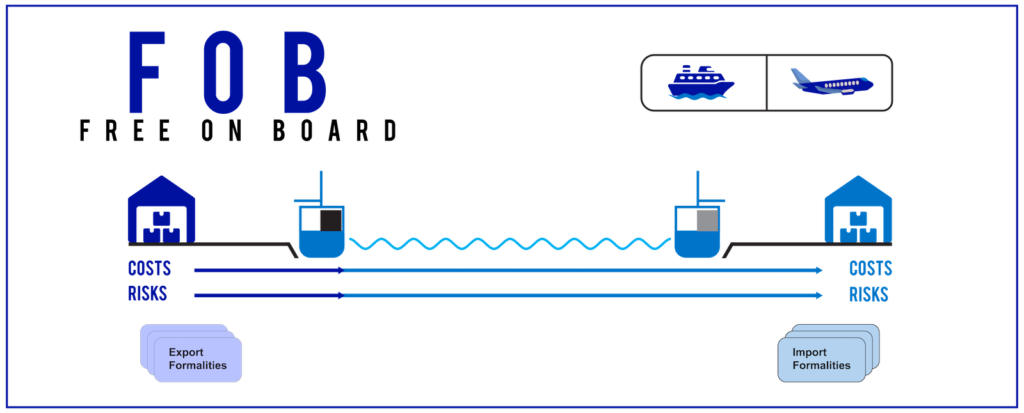
Delivered at Place (DAP) Location —
Normally, the customer takes over the risk and responsibility for unloading the goods and clearing them for import. We can unburden you by assisting with importation under DAP, using your own import license.
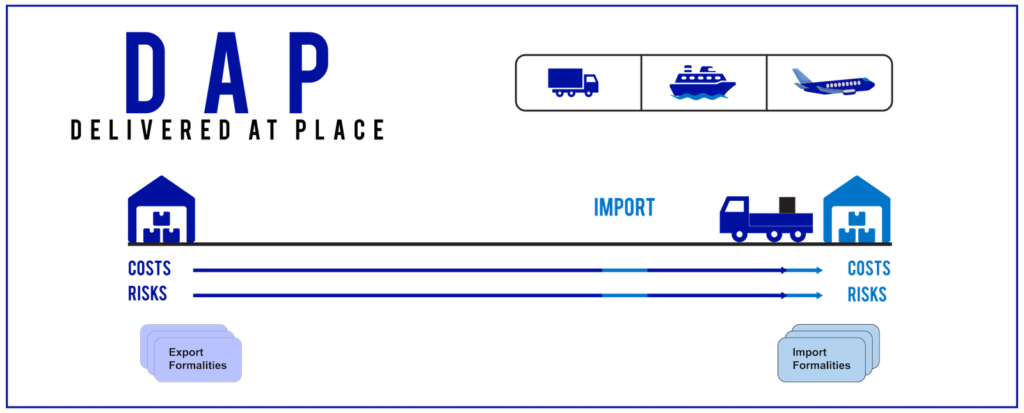
Delivered duty paid (ddp) —
It is important to note that DDP does not necessarily mean delivered to your front door. Under DDP, we often deliver the goods to one of our warehouses in the destination country, and this does not include last-mile delivery to your final location.
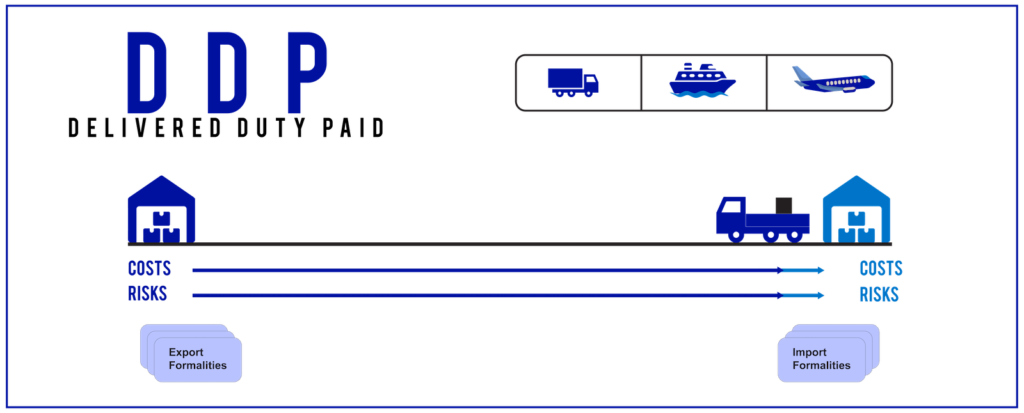
Only our long-term customers with contracts qualify for DDP, given it is accompanied by a lot of risks, especially with the current fluctuation of shipping prices.
What Incoterm is right for you?
While deciding on your Incoterm, it is important to consider how much risk and responsibility you want to take, what level of delivery service you expect, and how it reflects on the final cost of your products.
Regardless of which Incoterm you decide to use, suppliers can often export and transport your goods at a better price. This is because they can negotiate better rates with logistic service providers. Therefore, it is worth inquiring about your supplier’s logistic services to get the best possible shipping rate.
Note that ownership is a topic on its own, dependent on the moment of invoicing, payment, and legal transition.
Would you like to discuss the topic of Incoterms further and learn how they can impact your business? Feel free to contact us today.

